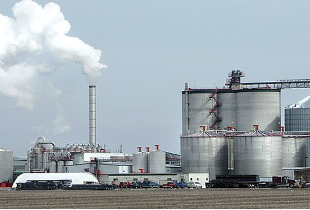
In a significant achievement for its energy sector, India has become the third-largest producer and consumer of ethanol globally, marking a milestone in the country’s pursuit of sustainable energy solutions. This development is a direct result of progressive policies enacted by the Indian government to promote biofuels and reduce the nation’s reliance on fossil fuels.
Government Initiatives Driving Growth
A key driver of India’s ethanol boom has been a series of government initiatives designed to boost production and consumption. These policies include financial incentives for sugarcane farmers and ethanol manufacturers, aimed at increasing ethanol availability for fuel blending. The government’s focus on biofuels is not only enhancing energy security but also providing a much-needed economic boost to rural areas, particularly for sugarcane farmers.
By blending ethanol with gasoline, India is taking bold steps to lower its dependence on imported crude oil, reduce greenhouse gas emissions, and support agricultural communities across the country. This strategy aligns with India’s broader commitment to renewable energy and sustainable development.
India Sugar & Bio-Energy Conference 2024
In September 2024, the India Sugar & Bio-Energy Conference was held in New Delhi, bringing together policymakers, industry leaders, and key stakeholders in the bio-energy sector. Organized by the Indian Sugar & Bio-Energy Manufacturers Association (ISMA), the event provided a platform to discuss the future of the sugar and bio-energy industries, with a particular focus on ethanol.
Conference Theme: Sweet Sustainability
The theme of this year’s conference, “Harmonising Sweet Sustainability: Navigating India’s Path to a Green Economy,” emphasized the need for innovation and collaboration to foster eco-friendly practices in both the sugar and bio-energy sectors. Discussions revolved around how to further enhance ethanol production, improve supply chains, and promote sustainable agricultural practices.
The conference highlighted that the growth of the ethanol industry is not only an environmental imperative but also a major opportunity for economic expansion. Participants explored ways to integrate sustainable farming techniques with biofuel production to support India’s green economy goals.
Growth Opportunities and Future Outlook
The discussions at the conference outlined promising growth opportunities for India’s ethanol industry. Stakeholders noted that increased production would improve supply chains, encourage innovation in sustainable farming, and ultimately benefit both the agricultural and energy sectors. With the Indian government committed to increasing ethanol blending percentages, the industry is poised for robust expansion in the coming years.
This ethanol-driven growth supports multiple objectives, including enhanced energy security, reduced carbon emissions, and the strengthening of rural economies. By focusing on biofuels, India is positioning itself as a global leader in the renewable energy space, a move that is essential for long-term environmental sustainability.
What is Ethanol?
Ethanol, also known as ethyl alcohol, is a renewable biofuel derived from plants such as sugarcane and corn. It is commonly used as a solvent, in beverages, and increasingly, as a fuel. Ethanol contains less energy than gasoline, providing about 67% of the energy per liter when burned. However, its renewable nature and the ability to produce it from waste materials, like agricultural byproducts and organic waste, make it a key player in the quest for sustainable energy sources.
A Path to a Greener Future
India’s rise as the third-largest ethanol producer and consumer underscores its commitment to a greener, more sustainable future. The continued collaboration between the government, industry leaders, and the agricultural sector is crucial for realizing the full potential of ethanol as a clean and renewable energy source. By embracing biofuels, India is not only contributing to the global fight against climate change but also ensuring a secure, energy-efficient future for its people.

